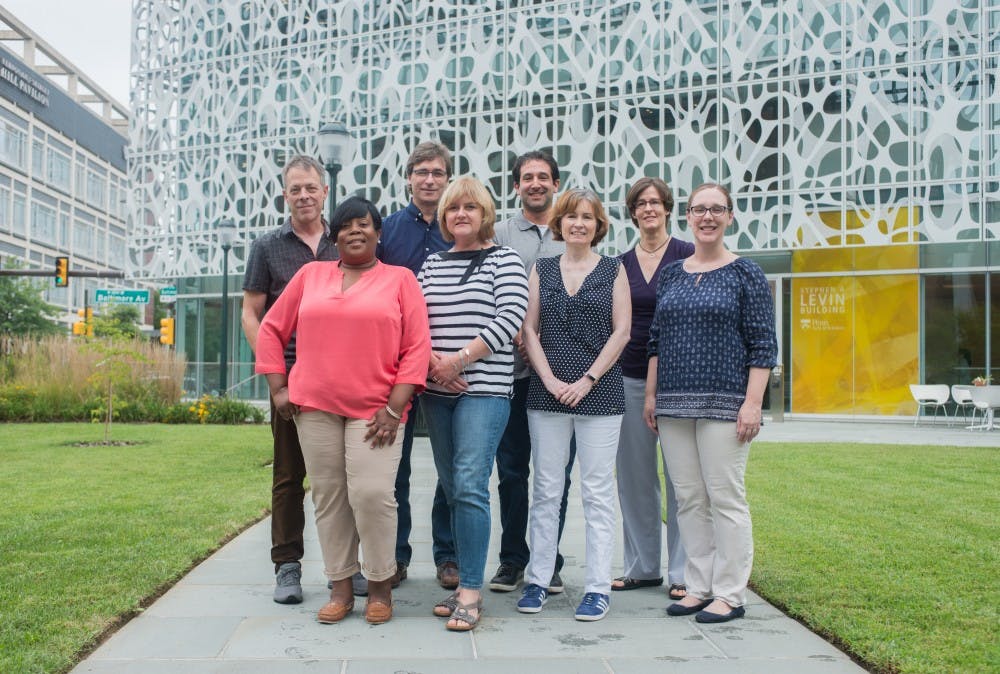The Biological Basis of Behavior program is weighing a decision to change the major's name to the more simplified "neuroscience" or "neuroscience and behavior," a move that an overwhelming majority of students are welcoming given its obscure name.
In a survey distributed on April 17 to BBB majors, 50% of respondents said they wanted the major's name changed to "neuroscience," while 32% of respondents preferred "neuroscience and behavior," according to an April 23 email sent to majors by BBB Associate Director Jennifer Heerding. Only 18% of students reported that they wanted to keep the original name.
BBB program Co-director and Psychology professor Lori Flanagan-Cato said about 200 out of 260 current majors responded to the survey.
Students say they approve of the change, given the major's unnecessarily complex title compared to "neuroscience," which is more recognizable to job recruiters and professionals in the field. The program heads are now reviewing responses before they decide to submit an official proposal to change the major's name, which could go into effect as early as fall 2020, Flanagan-Cato said.
BBB is an interdisciplinary major that lets students study neuroscience and behavior from a variety of angles, combining aspects of biology, chemistry, psychology, and statistics. While the biological aspect of the major examines topics such as brain anatomy, the behavioral aspect focuses on topics like human cognition and neurological diseases, according to the BBB website.

College junior Aaron Groff said BBB program leaders should change the major’s name because it would be easier to explain the major to other people, including job recruiters and family members.
“Sometimes when I say biological basis of behavior, I get looked at like I have three heads,” Groff said.
RELATED:
MindCORE, Penn’s new interdisciplinary program, focuses on “integrative study of the mind”
Prof Emile Bruneau discussed how neuroscience influences worldwide conflict at Penn event
College and Wharton senior Ryan Leone also said he supports the change because the current name is unnecessarily complicated.

The current textbook for BBB 109, BBB's introductory course, "Neuroscience: Exploring the Brain."
“People don’t really understand what [BBB] is, so you explain it,” Leone said. “And when you explain it, you are often telling them neuroscience anyway."
Leone, however, said "neuroscience" may not sufficiently represent the diversity of materials the major covers.
“[Neuroscience and Behavior is] not too bold of a move away from BBB, while it’s not too generic as neuroscience,” College senior Ian Jean said.
College sophomore Christina Dicindio also said she hopes the major will be changed to "neuroscience and behavior" because it encompasses what the students are learning. While the current name points out the behavioral aspect of the field, everything in the discipline is still directed toward the brain and the nervous system, Dicindio said.
In the late 1960s, when the field emerged, people called the field "biological basis of behavior" and considered it an area where biology and psychology met, Flanagan-Cato said. The program leaders have kept the name since the major was first offered in 1978, but the growth of the neuroscience field is now making the program leaders reconsider.
Flanagan-Cato also said the major incorporates many aspects of neuroscience that focus less on behaviors and biology and more on neuroanatomy, neurochemistry, and physiology.
Flanagan-Cato cited the mandatory Molecular and Cellular Neurobiology course, which does not have behavior in the course title, as an example of the absence of behavior-focused courses in some aspects of the major. Some students may also choose to concentrate on neuroanatomy and not behaviors, Flanagan-Cato added.
The BBB co-directors, the associate director, and all lecturers have met to discuss the possible name change. If the program decides to move forward to change its name, it will submit the proposal to the Curriculum Committee for approval next fall. The current name will remain until fall 2020, Flanagan-Cato said, even if the proposal passes.
“The fact that many students like the name neuroscience, I think, is just another factor that encourages us to think about changing the name,” Flanagan-Cato said.









